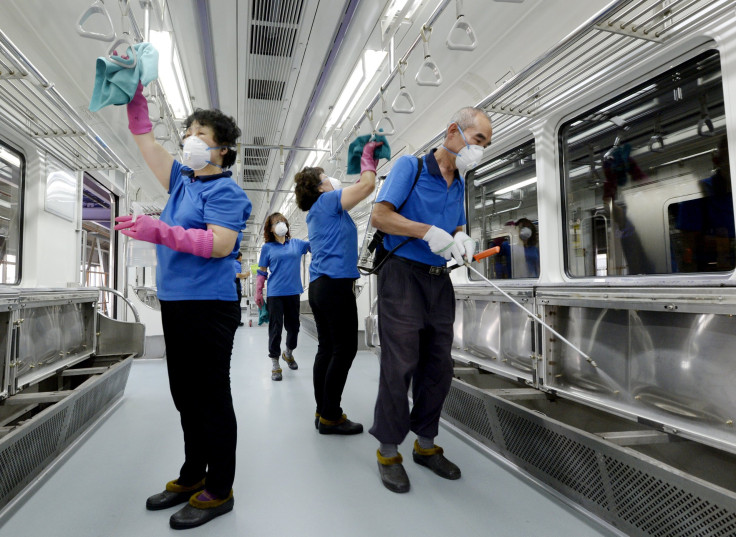MERS In Japan? South Korea Travelers Being Monitored To Protect Against Virus

Officials in Japan have begun taking measures to prevent the advance of an outbreak of Middle East respiratory syndrome (MERS) that started in South Korea. The Japanese government has been monitoring travelers from South Korea for signs of respiratory illness or fever and asking if they have come in contact with any patients who have contracted the deadly virus.
The new measures comes as Japan's Health, Wellness, Labor and Welfare Ministry continues to steadily institute guidelines to deal with the possibility of a MERS outbreak in the country. On Monday, the ministry called for all medical institutions to report any suspected cases to public health centers, according to the Japan Times. "All quarantine institutions [in Japan] have been instructed on steps to be taken in case of suspected infections," said Chief Cabinet Secretary Yoshihide Suga Tuesday at a news conference.
Officials in South Korea have been struggling to contain the disease. On Thursday, the Korean government revealed that a doctor infected with MERS, the 35th patient in the outbreak so far, had come in contact with roughly 1,500 people while carrying the virus. The illness, which was first reported in Saudi Arabia in 2012, causes a high fever, coughing and shortness of breath, which makes it hard to initially distinguish from the common cold. But MERS is far more deadly, having killed four so far in South Korea. Because symptoms develop within two to 14 days, it makes it difficult for medical officials to know who carries the coronavirus.
Along with government policies designed to stop the spread of the virus, Japanese companies have begun postponing business trips to South Korea, reports the Japan Times. Orders for soap and other antiviral and antibacterial products in Japan have also risen recently, from citizens worried by the fast spread of the virus through South Korea.
"If we continue to see orders coming in like this, we will consider increasing production," an official at Fumakilla Ltd., which has seen a spike in orders for medical and health-related products, told the Japan Times.
© Copyright IBTimes 2025. All rights reserved.





















